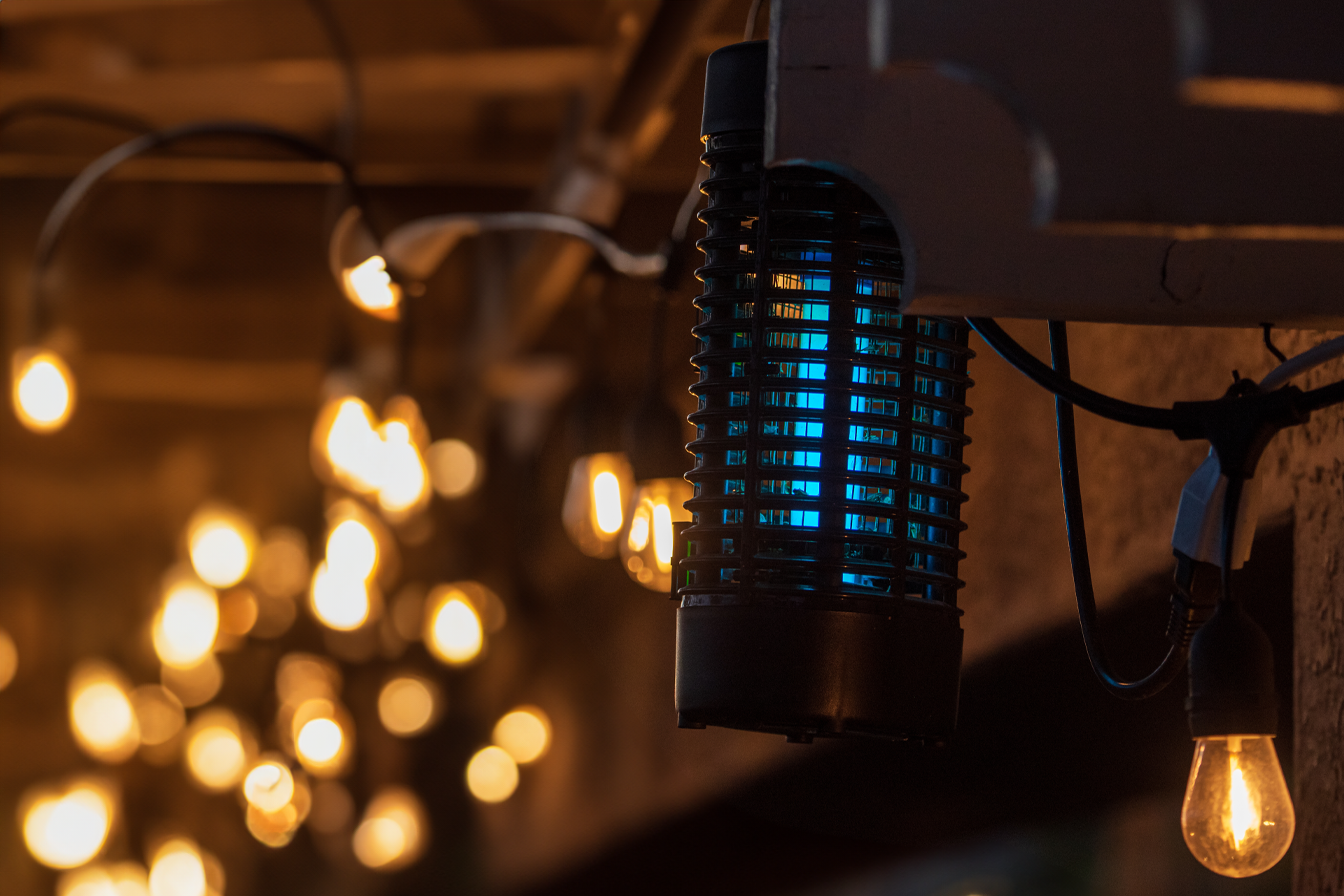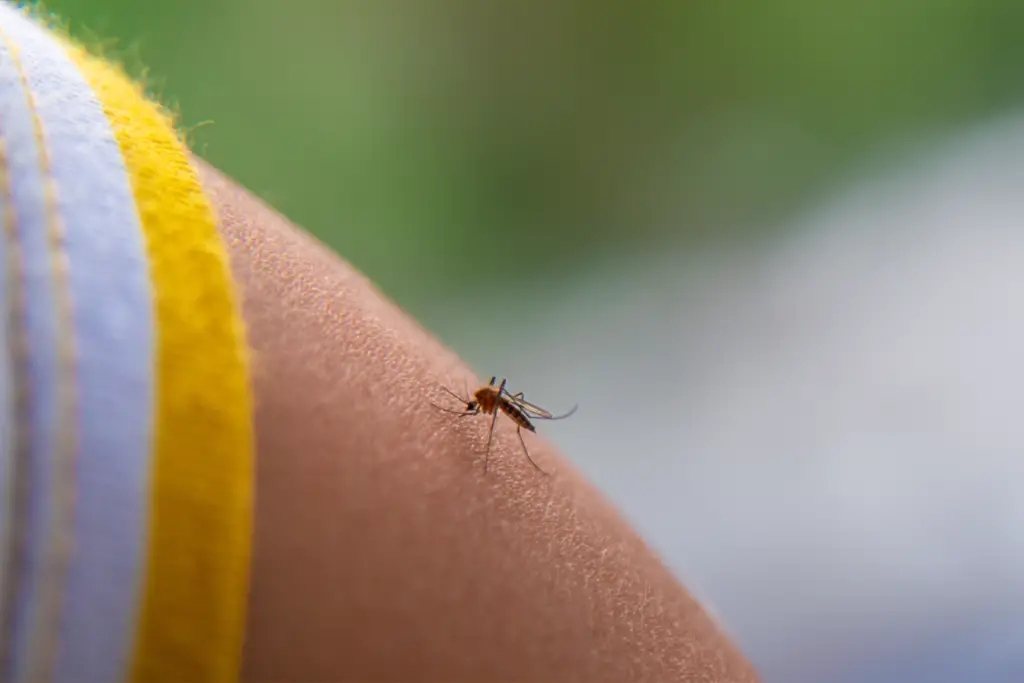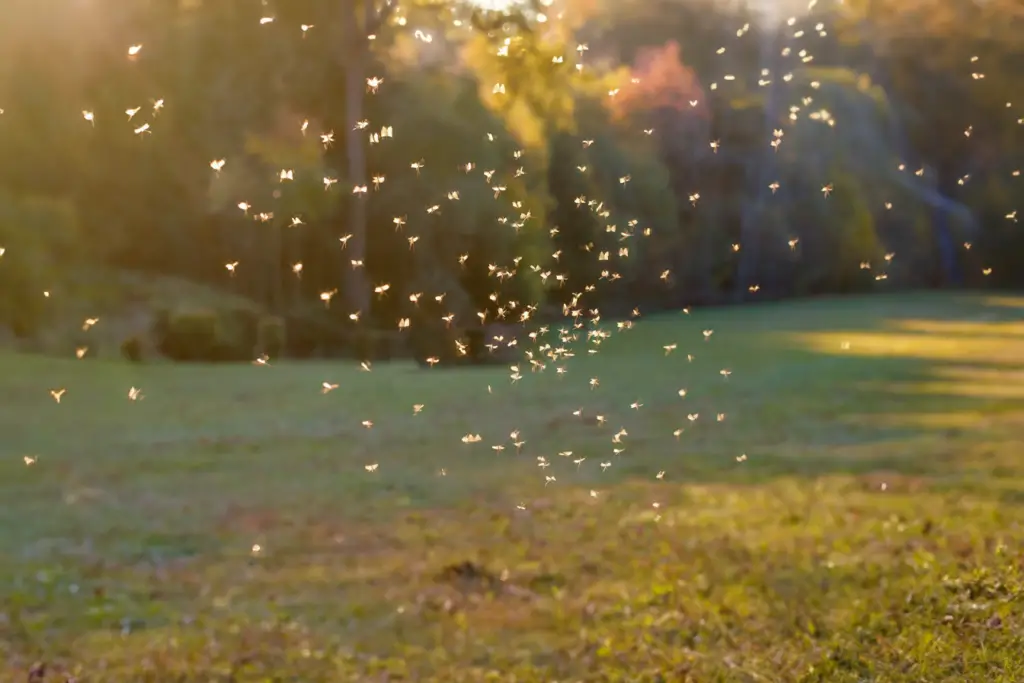
When you’re outside on a summer evening, you might notice mosquitoes buzzing around. It’s a common belief that these pesky insects are attracted to light, which is why you may find them swarming around your porch lights. But have you ever wondered if it’s really the light that brings them to you? The truth about mosquitoes and their attraction to light is not as straightforward as you might think.
Different species of mosquitoes respond to light in various ways. For example, some mosquitoes are indeed attracted to light, especially during the daytime. Others, however, actually avoid light and are known to be photophobic, especially to certain wavelengths of light. Instead of being lured by the brightness, mosquitoes are typically more enticed by other factors, such as carbon dioxide exhalation and body heat, which they use to locate their next meal.
Understanding the behaviors of mosquitoes can be crucial in managing their presence around your home. By learning about what attracts them, you can take steps to minimize their nuisance, such as using specific types of lightbulbs that don’t attract mosquitoes or employing other preventive measures to keep them at bay. It might not be just the light that’s bringing them to your backyard barbecue, but a combination of factors that you can influence to enjoy more peaceful, bite-free evenings.
Mosquito Attraction Basics
Understanding how mosquitoes are attracted to their environments is crucial for both avoiding bites and controlling their presence around your home.
Understanding Mosquito Behavior
Mosquitoes rely heavily on their keen sense of smell to locate their next meal. They are incredibly adept at detecting carbon dioxide, body odors, and heat, which allows them to hone in on humans and animals. Although light plays a role in their navigation, mosquitoes generally do not depend on it solely to find food. Research suggests that different species have varying reactions to light, influenced by factors such as the time of day and the wavelength of the light.
Visual Cues and Mosquitoes
Your understanding of how mosquitoes interact with light can inform your approach to mosquito control. Contrary to popular belief, mosquitoes are not primarily attracted to light; instead, they use it for navigation. Studies indicate that some mosquitoes are attracted to certain wavelengths of light, with day-biting species reacting differently compared to those active at night. Installing yellow bulbs, which emit light less visible to mosquitoes, can be a strategic choice, though it’s important to note they won’t fully deter these pests.
Light’s Role in Attracting Mosquitoes
Mosquitoes’ attraction to light is more nuanced than you might think, and the type and color of light can significantly affect their behavior.
Types of Light Mosquitoes Are Drawn To
Mosquitoes are not drawn to all light sources equally. Often, they seem to prefer ultraviolet (UV) and bright white fluorescent lights which give off heat – an attribute that tends to attract these insects. Interestingly, LED lights are less appealing to mosquitoes because they emit minimal ultraviolet rays, leading to less heat production.
Effect of Light Color on Mosquito Attraction
The color of the light also plays a pivotal role in attracting mosquitoes. Lights that emit yellow, warm white, orange, or red hues are less likely to draw mosquitoes than cooler shades like blue or cool white. Implementing bulbs with yellow wavelengths can be a strategic choice as it’s less visible to mosquitoes, making it more challenging for them to use it as a beacon to find their next meal.
Other Factors Influencing Mosquito Attraction
Aside from their attraction to light, mosquitoes are lured by other elements that are indirectly related to their quest for a blood meal. Understanding these factors can help you mitigate mosquito presence around you.
Carbon Dioxide and Heat
You emit carbon dioxide (CO2) every time you exhale, and this is like a dinner bell for mosquitoes. Heat is also a significant attractant, as your body warmth can guide these pests to you. It has been noted that the carbon dioxide we release when we breathe makes us more noticeable to mosquitoes who use CO2 as a signal to find their next meal.
Body Odors and Chemical Signals
The scent of your skin plays a crucial role in attracting mosquitoes. Your body secretes carboxylic acids, which are compounds that mosquitoes find particularly appealing. It’s not just about how you smell, though—elements like lactic acid, ammonia, and other substances present on your skin also act as chemical signals that draw mosquitoes closer for a bite.
Frequently Asked Questions
When it comes to mosquitoes and light, there are several common questions that you might want answers to. Here’s some clear information to shed light on how these flying pests interact with different lighting conditions.
Does the color of light affect mosquito attraction?
Yellow bulbs may be a better choice for outdoor lighting because mosquitoes are less visible to this wavelength, making it harder for them to locate you.
Can UV light attract or repel mosquitoes?
Although some insects are drawn to UV light, mosquitoes do not seem to be particularly attracted to it. It’s not effective in repelling mosquitoes; they are more attracted to carbon dioxide and warmth than UV light.
Do mosquitoes prefer light or dark environments?
Mosquitoes are generally more attracted to dark colors as they absorb heat, but this doesn’t necessarily mean they prefer dark environments. They use light to navigate rather than as a beacon to draw them in.
What attracts mosquitoes to humans indoors?
Mosquitoes are attracted to carbon dioxide and body warmth, both of which humans produce, making us prime targets indoors.
How can light influence mosquito behavior?
Light can influence mosquito activity by affecting their circadian rhythms, helping to determine when they are most active and, thus, when they are out hunting for food.
What methods are effective at keeping mosquitoes away at night?
Besides using insect repellents, installing yellow or red outdoor lights could be beneficial as these are less attractive to mosquitoes. You can also use screens on windows and doors to keep them outside.
Driven by a passion for those tiny creatures that rule our world, we at Bug Domain strive to be your go-to resource for information on insects.



